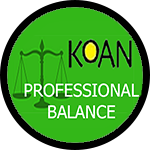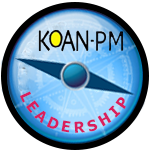Our offer of HR tools |
|
| | |
Click hereunder to know which instrument suits your purpose |
|
| | |
| |
|
| |
|
| |
|
| |
|
| |
|
| |
|
Our offer of HR tools |
|
| | |
Click hereunder to know which instrument suits your purpose |
|
| | |
| |
|
| |
|
| |
|
| |
|
| |
|
| |
|








|
|
||||||||||||||||||||||||||||||
|
|
||||||||||||||||||||||||||||||
|
|||||||||||||||||||||||||||||||
The results can be compiled in a personality profile report. You can choose from 3 reports :
Profile report
Competence report
User report
| K | nowing the competencies of your Project Managers is of strategic value for your organization? |
| O | n which Project Manager could you rely on to finish difficult tasks? |
| A | re your ambitions in sync with the project management needs? |
| N | ominating the best Project Manager for challenging projects is difficult for you? |
| P | lanning to create a training strategy to stretch your Project Managers' potential? |
| M | anpower optimisation is essential to you for the success of complex projects? |
Recently, Alert Management Consultants has launched a new product, KOAN-Project Management (PM). This competency scan is based on several years of efforts on research and development. This unique instrument can help you to evaluate the competencies of your present and future project managers. As a project manager, the KOAN-PMI is a great tool to map your strengths and area’s of further growth from a project management perspective.
As preparation for the IPMA- certification:The first part of the report is of a descriptive nature. THereby, we have given utmost attention to every single detail of the text. The final text revision was under the supervision of the Chief Editor of a renowned monthly publication on Project Management.
Feedback from a customer:
“What I find very useful in practice is that you look at the strengths of areas of attention for each of the
four different phases in a project. My experience teaches me that people immediately take a look at these and find the small descriptions very recognizable and useful."
The second part of the report is of a predictive nature. In this part we list a number of competencies and their underlying behaviors. The score indicates the ease and probability with which the respective Project Manager exhibits this behavior.
The first section describes the strengths and weaknesses of a vendor as a function of the classical tripartite division.
2. PREDICTIVE
In the second part of the report, you find the ten competencies derived from the research as the most important ones for a sales person. Hereunder you find the list:
1. Customer orientation 2. Results-orientated approach 3. Commitment to organization 4. Influencing strategies 5. Communicating and networking 6. Perseverance 7. Responsiveness 8. Positive attitude 9. Methods 10. Example to others
1. Potential obstacle for getting success in sales 2. Needs attention 3. Meets the functional sales expectations 4. Indicates potential for excellent performance 5. Indicates potential for outperforming results
You can use the Koan SalesDNA report as support for
| Selection of sales staff | ||
| Internal mobility from sales support staff to field sales functions | ||
| Defining the training needs |
Establishing your organisational blueprint of sales success
Focus: one's strong points and weaknesses within developing a professional career.
The report consists of 3 parts that complement each other.

| HOW ARE WE ENERGIZED? |
|||||||||||||||||||||||||||||||||
|
   |
|
|||||||||||||||||||||||||||||||
| HOW DO WE TAKE IN INFORMATION? |
|||||||||||||||||||||||||||||||||
|
   |
|
|||||||||||||||||||||||||||||||
| HOW DO WE MAKE DECISIONS? |
|||||||||||||||||||||||||||||||||
|
   |
|
|||||||||||||||||||||||||||||||
| HOW DO WE ARRANGE OUR LIFES? |
|||||||||||||||||||||||||||||||||
|
   |
|
|||||||||||||||||||||||||||||||
|
|
|
|
|
|
CONTACT US when you want to know more about your Type!
|
||||||||||||||||||||||||||||

ALERT 360°: THE 360° SOLUTION
Learn from feedback. Time and again this has shown itself to be of crucial importance for the personal and professional development of managers. Feedback from people from within the immediate surroundings is indeed immeasurably valuable. Of course it is also important that the feedback comes from different angles. Alert 360° lists the reactions from superiors, colleagues and direct reports, so that you are presented with an overall picture. This way you can evaluate your own way of management, or act as coach in accompanying others in a development plan.
THE KEY TO MANAGEMENT DEVELOPMENT
As leader it is no easy thing to sense what developments are needed in order to function more efficiently. Alert 360° therefore assists by means of signals from the surroundings to formulate objectives for the future. Clear, but nonetheless ambitious objectives, for which you need to stretch yourself to the limit. In this way Alert 360° is a springboard to purposeful management development. It is an investment which is fruitful in accompanying managers along the path to success.
YOUR CHOICE: STANDARD OR TAILOR-MADE
Depending on your requirements, Alert 360° allows you to opt for a standard package, or for a version adapted in accordance with needs. The standard package consists of various scales which measure a range of competencies. If you choose the tailor-made instrument, you have the possibility of indicating yourself which skills are of importance to you and of creating a 360° report that reflects your own competencies. In this way Alert 360° provides you with a report which has been designed for your specific situation.
A RELIABLE INSTRUMENT
Alert 360° has been thoroughly researched for reliability and validity. On top of this it is based on the most important tendencies in current philosophy in the area of management. Alert 360° is therefore specifically tuned in to the requirements of modern day management.
A PRACTICAL FEEDBACK REPORT

The cognitive test, called Facet, is based on the idea of intelligence consisting of different facets or factors. These three global factors are verbal, numerical and visual-special skills. These three factors together give an indication of someone's general intellectual capacities.
|
|
Answer 1 | Answer 2 | Answer 3 | Answer 4 | Answer 5 |
| pencil / to draw |
|
|
|
|
|
| 1 | 3 | 5 | 7 | 9 |
|

 |
 |
 |
 |
 |
| 1 | 2 | 3 | 4 | 5 |

POLYGLOT LANGUAGE TESTS: A BRIEF OUTLINE


